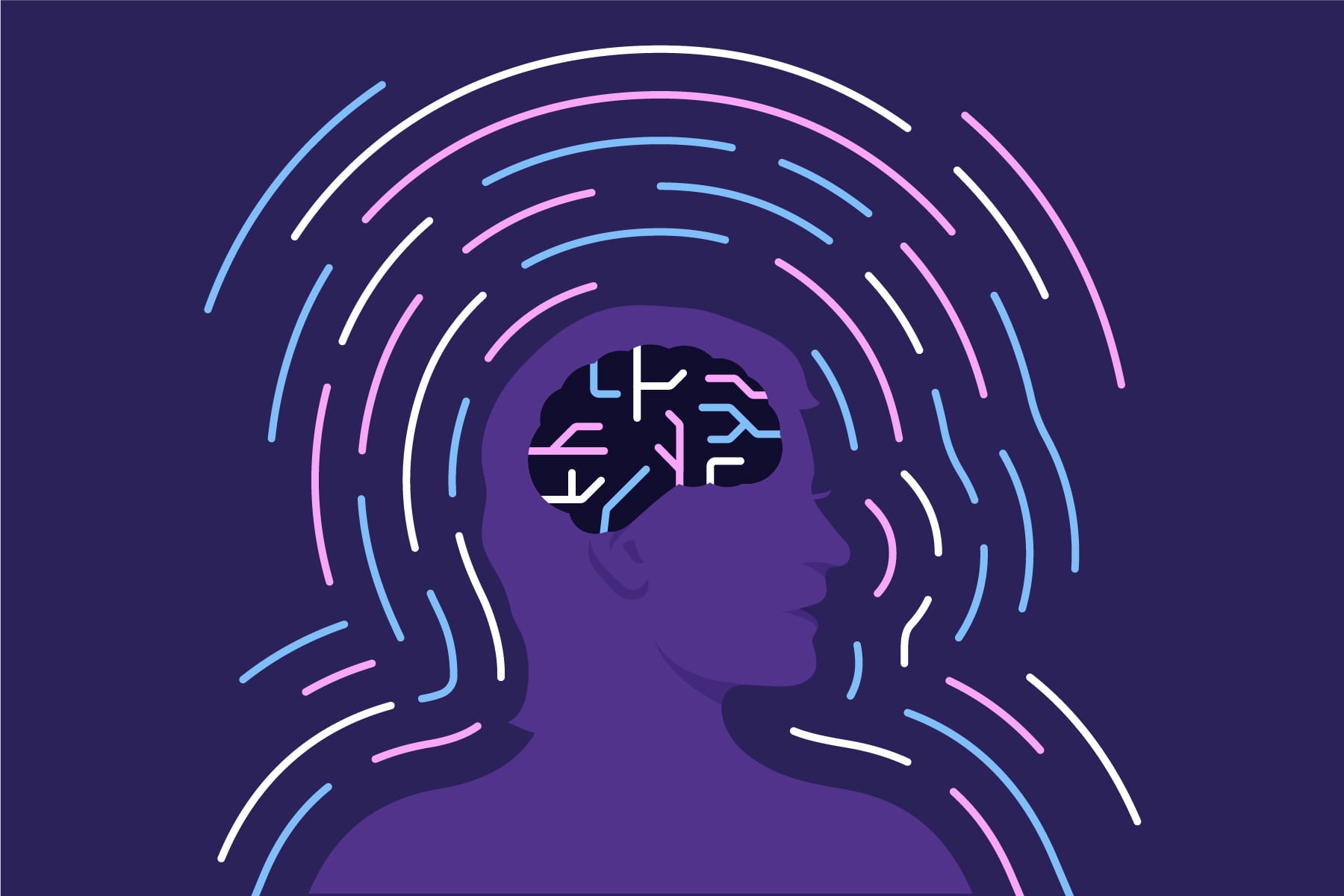It’s been two-and-a-half years since Quin Martin started looking for a therapist. The 30-year-old is Black and nonbinary transgender, and they want a mental health provider who affirms both of those identities.
Martin doesn’t have any transgender friends in Lancaster, the Pennsylvania Dutch community they call home. Through online gaming, Martin has found trans friends, but they want someone to talk to as they start taking hormones and navigate family issues.
“I feel like my main need now, as I explore my gender identity even further and how I want to present, is to be able to talk about that stuff in a private space with someone and not be influenced by a bunch of other people who are also going through their journeys,” Martin said.
Martin, like many trans people, can’t find a mental health clinician where they live who is knowledgeable about trans issues. They are not alone. The 2015 U.S. Trans Survey found that 77 percent wanted therapy to talk about gender issues, but only 58 percent had ever received any.
Experts say those numbers have not likely improved much in the six years since the survey — one of the only reports on trans people in the United States — was completed. Even in cities known for providing transgender services, trans people overwhelmingly report myriad barriers in getting mental health services, experts say.
For decades, the relationship between mental health providers and transgender people was deeply fraught. “Gender identity disorder” was pathologized by the World Health Organization as a mental disorder until 2019. In the United States, transgender people hoping to medically transition needed prove the sincerity of their transgender identity as well as the soundness of their mental state to a therapist or psychologist before beginning the process.
Jamison Green, past president of the World Professional Association of Transgender Health, said those practices, which began in the 1960s, continued into the 1990s in many places in the United States.
“In the United States, university-based programs, usually, were deciding who would be a good candidate for surgical sex reassignment and not really taking into account who trans people really were, how trans people wanted to live their lives,” he said. “But they were deciding, essentially, that you should go from being Barbie to being Ken or being Ken to being Barbie.”
Today, transgender and nonbinary people can largely access surgery and hormones without the gatekeeping from doctors. Insurance companies often require letters from mental health providers stating that a patient has gender dysphoria in order to cover transgender affirming care, but surgeons don’t need them.
Still, the longstanding relationship between transgender mental health and access to physical health has fundamentally changed therapy for trans people, experts say. As a result, trans people have not only been robbed of spaces to process the regular life challenges that most of their cisgender peers use therapy for — family issues, breakups, work stress, past traumas — but also other necessary mental health care.
Karl Marty, who is nonbinary, has been trying to find a trans-affirming therapist in Detroit for two years. They don’t trust a cisgender therapist to understand the ways that gender dysphoria — the psychological stress a person experiences when their body doesn’t align with their gender — has alienated them from their body.
“I worry it would end up with them making the case that there are many ways to be a woman and I shouldn’t have to change my body so drastically in order to love it,” Marty said. “So if I bring up a very real issue I’m dealing with, it has the potential to go very wrong very quickly with the therapist and I talking past each other.”
Marty has mental health needs beyond wanting to process their gender. They need a trans-affirming psychiatrist to help manage their anti-depressants, something their primary care physician doesn’t feel comfortable doing even though she does see transgender patients.
“I know that the pandemic has been really hard on everyone,” Marty said. “It’s like my issues are not unique or even terribly interesting, but because my baseline was pretty shaky,
I’m just completely falling apart.”
Amanda Kruger, a nonbinary actor in Los Angeles, was able to find just one gender-affirming therapist covered by their insurance, which was purchased on California’s state exchange. Many trans-affirming therapists don’t accept insurance because rates negotiated through insurance companies are too expensive for small providers, advocates say. Kruger is happy with their therapist, but they know they are lucky.
“I almost don’t know what I would have done if he hadn’t been a fit for me,” Kruger said. “I feel like I’m just really blessed in that his personality fits really well and he’s very soft spoken. He’s very kind, he’s very patient.”
Experts say finding psychiatrists who are trans-affirming can be an even heavier lift than accessing therapists. Green is among a handful of transgender advocates whose work forms the bedrock of best practices in transgender health. According to Green, schools have been slow to offer trans competency training to mental health students. Anti-discrimination protections for transgender people under the Affordable Care Act never fully went into effect after a 2016 lawsuit blocked them and the Trump administration fought to roll them back. That meant that trans health care was not prioritized by many, including schools, Green said.
“What we need is to have this stuff incorporated into required training for all doctors,” said Green. “We’re not culturally in a space for that yet… I mean, look at what’s happening on the state level [with anti-trans bills].”
As a result most providers simply don’t know how to treat trans people, from the basics like getting names and pronouns correct to helping patients talk through the complexities of navigating families and relationships.
Green said that even in major cities, most providers simply don’t have the training to adequately meet the needs of trans clients.
“Even though you may find a therapist who is compassionate and wants to be helpful, they don’t have enough exposure to trans people, widely speaking,” he said. “I do think a lot of people have become more culturally sensitive and less judgmental, but it doesn’t mean they have knowledge.”
Still, more transgender people need mental health services than ever before, experts say.
Bri Barnett, director of advancement for the suicide prevention hotline Trans Lifeline, said her organization has seen a consistent 40 percent jump in callers experiencing suicidal ideation since the start of the pandemic in late February 2020.
“The ways in which the pandemic exacerbated a crisis of isolation that faces the community is certainly part of it,” Barnett said. “I think part of it is also these political attacks, which are really specifically targeted against trans youth, especially patient access against the ability to access mental health care and physical health care that are really just legislating against best practices.”
A leading LGBTQ+ advocacy organization, the Human Rights Campaign, has deemed 2021 the worst in history for anti-trans legislation. More than 30 states have introduced bills targeting the rights of transgender kids in school sports and limiting their access to gender-affirming medical care.
Advocates say that while most of the bills passed are aimed at youth, they have had a ripple effect that looks more like a tsunami on the wider transgender community. More transgender people have been been murdered this year so far than any year on record, fueled by anti-trans animus stirred by the bills, advocates say.
The violence and discrimination, coupled with the pandemic, created unprecedented challenges for transgender Americans and their mental health, experts say. And still, resources to meet those needs have fallen far short.
LGBTQ+ youth suicide prevention organization The Trevor Project reported in an August 2020 study that 1 in 3 trans and nonbinary kids said they were not getting mental health care because they feared a provider wouldn’t understand their gender or sexual orientation. Those numbers actually showed that transgender youth were more likely than their lesbian, gay and bisexual peers to get counseling.
Amy Green, vice president of research at the Trevor Project, said that could be because trans kids are made to go to therapy when they express gender variance, but that could include programs like conversion therapy, the pseudo-scientific practice that purports to make LGBTQ+ people heterosexual and cisgender.
“We don’t know from this data what type of treatment that was or what level of quality the mental health care they received was specifically in respect to their sexual education and gender identity,” Green said.
That harmful “care” is exactly what many fear. But Martin, in Pennsylvania, also knows how powerful good therapy can be. They started therapy at age 14 when they were depressed and self-harming. It was a therapist who first asked Martin what name they wanted to be called.
“She knew my name, of course, but she asked me what I wanted my name to be,” Martin said. “I told her, I wanted my name to be Billy, and that I didn’t want to be called a girl or a boy or anything.”
The therapist didn’t interrogate Martin about the name or their gender. She just nodded.
“I felt like that was the first time in my life where I had that euphoria, like, wow, someone’s listening to me and seeing me.”







